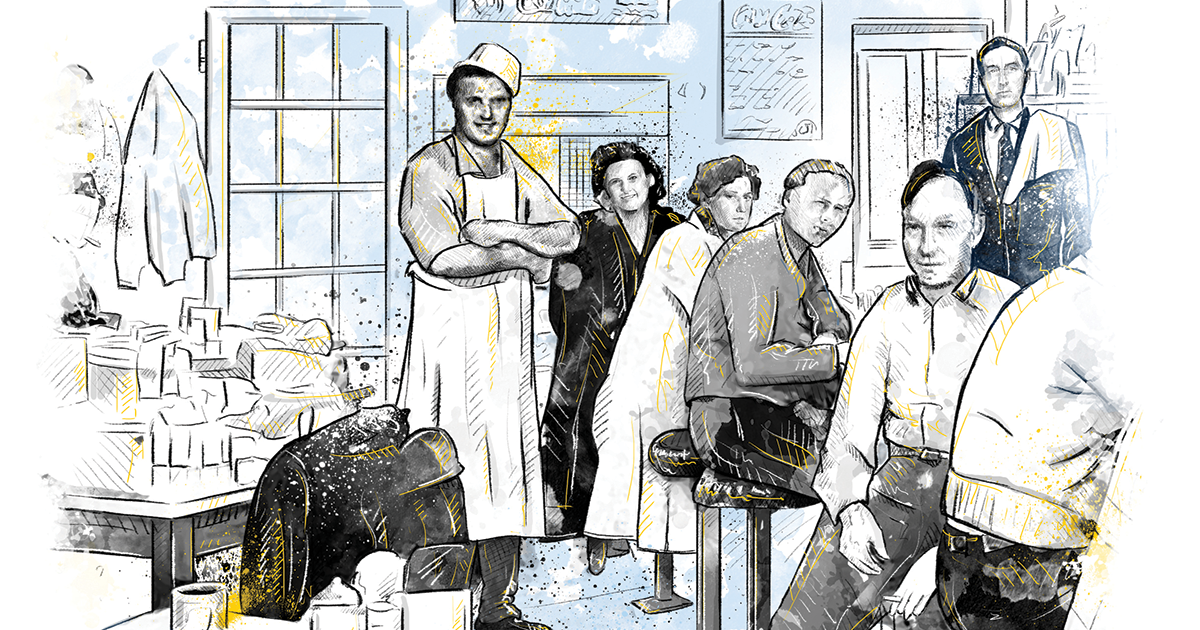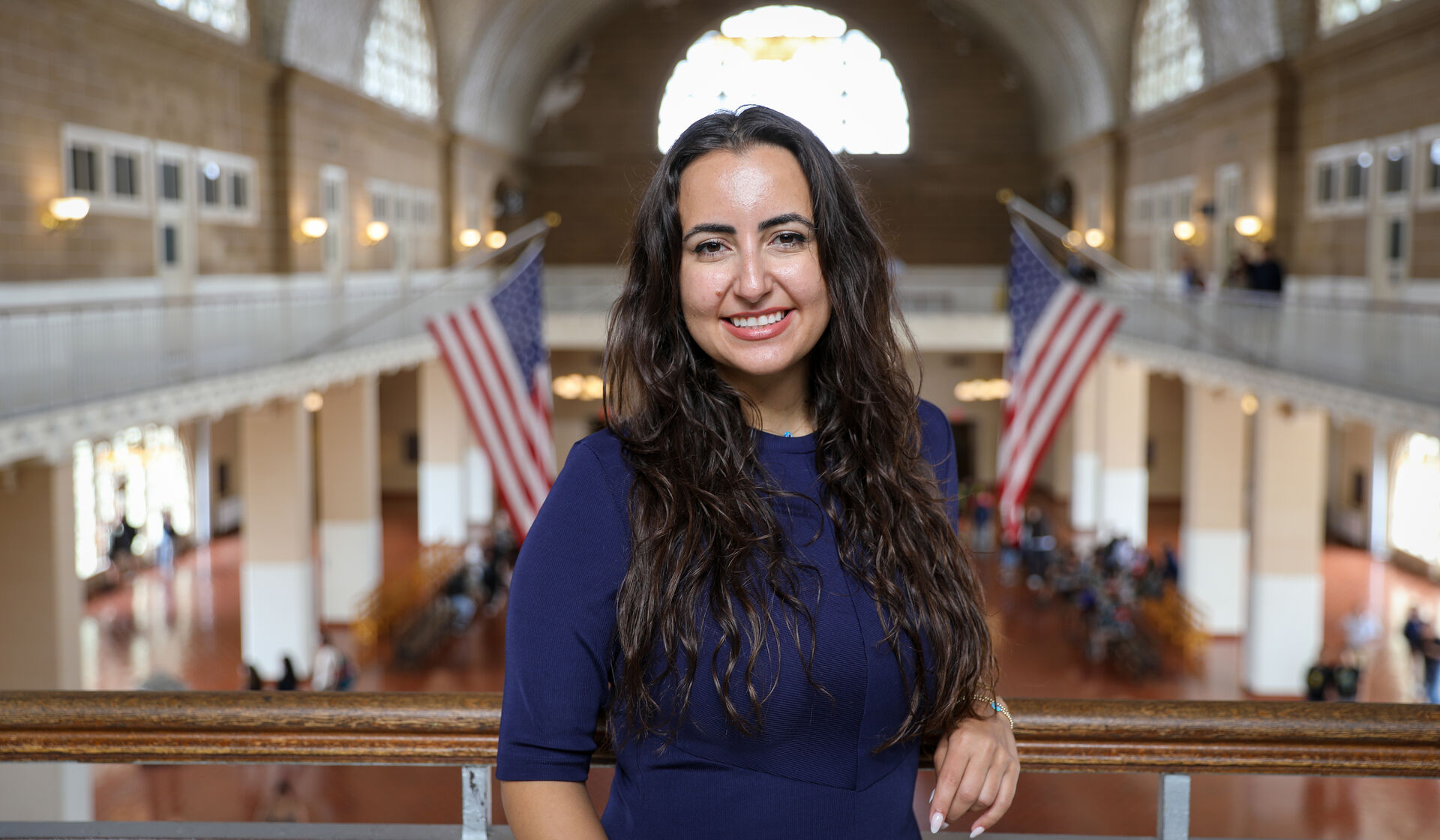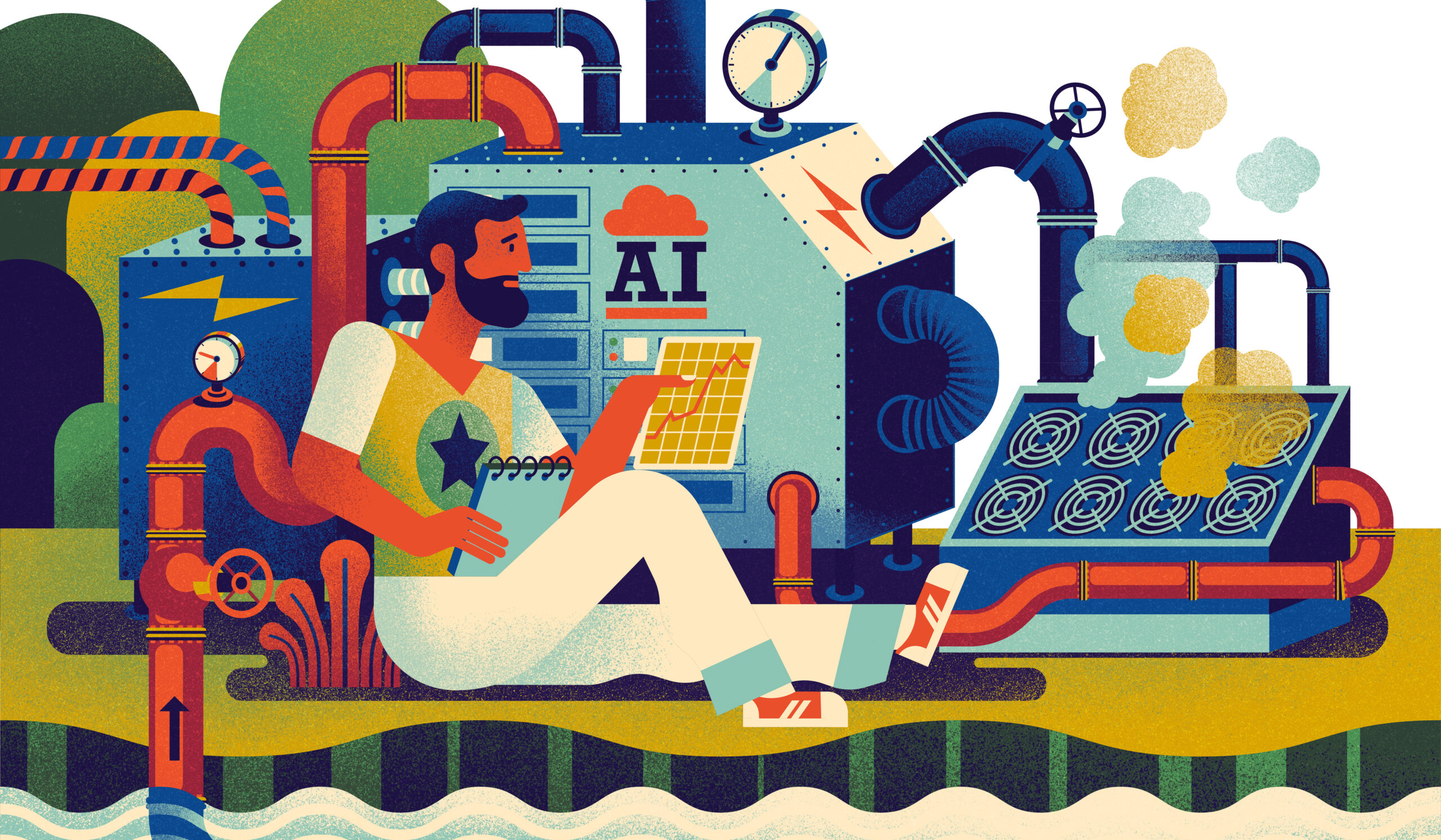My grandfather always preached about the importance of obtaining a formal education, which I often thought was ironic because, as far as I knew, he had done little to realize this goal for himself. Andrew Yanitsky—or Andy, as most people called him—was the eldest son of nine children born of Ukrainian and Polish immigrants. He dropped out of school in the sixth grade, presumably to work in the Pennsylvania coal mines like his father.
However, in the 1920s, the family moved to Cleveland, where his father worked in a silk factory. Andy, barely a teenager, attended a cooking program designed to keep juveniles off the streets. After the tragic death of his brother, the family moved on to Ann Arbor. The burgeoning college town, with its wide-open spaces and clean air, was vastly different from the coal mining towns in Pennsylvania and industrialized Cleveland.
Andy immediately put his culinary education to work and started cooking at both the Michigan League and the Lawyers Club. When he wasn’t working there, he spent the rest of his time at his mother’s Coney Island-style restaurant on East William Street. The whole family contributed in some manner. Andy’s sisters waited tables, the in-laws washed dishes, and he and his mother cooked. In addition to traditional Coney Island staples, they served up a menu of pot roasts and soups along with traditional Ukrainian dishes. It was truly a family business, serving the U-M community throughout the Great Depression.
But my grandfather’s culinary contribution to the U-M community undoubtedly paled in comparison to what he gained in return. Each job offered Andy plenty of time to rub elbows with students and staff. He was privy to academic discussions about people, places, and things that his sixth-grade education could never approach. Andy also had access to cultural events at the University’s museums, auditoriums, and lecture halls that made his coal mining roots seem as though they were a part of a completely different lifetime.
I never knew any of these things about my grandfather until I graduated from U-M. While sitting in the Michigan League before my School of Education graduation reception, my grandmother casually mentioned that my grandfather had worked there as a cook. My father remarked that it was interesting how one generation was relegated to work in the building while another generation was honored there. Indeed, it was probable that someone not unlike my grandfather might have worked on the reception’s preparations that day; I have never been able to let go of that image.
I have come to suspect that my grandfather’s experience in the U-M community probably mirrored my own as a student. I suspect that, like me, he was in awe of the grandeur of the architecture, a bit intimidated by the caliber of intellect, and extremely pleased to have been afforded the opportunity to live in that city. Judging from his subsequent accomplishments, my grandfather surely made the most of his opportunity.
After serving during World War II and earning a Bronze Star, my grandfather married and headed north to Michigan’s Upper Peninsula to pursue a business venture with his brother-in-law. He acted as the company’s foreman and spent many hours digging holes, setting poles, and stringing wire cable. In short, he laid the foundation for electrical power to reach all parts of the U.P. He was his own boss and was able to provide a comfortable life for his family.
None of his achievements—from war hero to successful business owner—would have been possible had my grandfather remained in Cleveland or the coal mining towns of Pennsylvania. He needed to be in a place exactly like Ann Arbor and part of a community exactly like the University’s to find the vision and develop the courage to live the life he eventually chose.
And because of this, he made it possible for me, his oldest grandson, to become a part of the Michigan community in a way he was never able to and obtain that education he believed was so important. Such is the power of excellence, tradition, and pride that only a place such as the University of Michigan can instill in all who are a part of her community.
Eric Sullivan, ’98, is originally from Escanaba, Michigan, and currently resides in Lee’s Summit, Missouri, where he teaches English composition at the Metropolitan Community College-Longview. In honor of his grandfather, he is an active member of the VFW.





